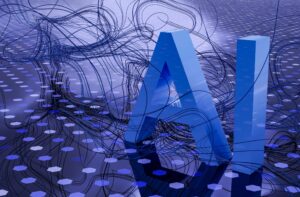by Nneka McGee and Krystal Chatman
The goals of change are aspirational. In the artificial intelligence (AI) era, we see change as a catalyst that will bring about the true transformation in education many of us have sought for decades. We all agree that change is necessary, right? Therefore, it’s only a matter of time before aspirations become concrete. Though we should continue to strive for the best ideas, there is one reality we must face: The difficulty of change is an inconvenient truth.
While change can be a challenge, particularly in education, hope is still a constant. Artificial intelligence and other emerging technologies have potential, but what are optimal ways to incorporate them into learning environments? Researchers have long explored the questions and possible answers of improving educational outcomes. Practitioners apply real-world experiences that significantly impact learners. The premise of bringing these disparate groups together offers a promising solution to understanding change.
In summer and fall of 2024, the Center for Integrative Research in Computing and Learning Sciences (CIRCLS) facilitated a convening of researchers and practitioners to explore AI problems of practice in PreK-12 education (for further details, see Educator CIRCLS ’24 Summer Series). An innovative act in itself, as it is not often the explorers of educational theory (researchers) are provided with the opportunity to collaborate with the facilitators (teachers) of the suggested strategies. This convening offered an opportunity for both sides to engage at a deeper level, gaining insight into how the “other side” operates to improve their practice. Through discussions, researchers had the opportunity to convey how valuable the experiences of practitioners are to the work of advancing innovation in education. Practitioners shared their interest in research areas such as generative AI and expressed their concerns about helping students navigate the future of learning.
Problems of Practice
Dialogue was a primary focus of the convening. To bridge the distance between practice and research, CIRCLS facilitators divided attendees into groups with the goal of centering conversations on what practitioners experience within their educational ecosystems. Through in-depth discussions, researchers and practitioners identified areas of focus by posing questions such as:
- Do we need multiple literacies?
- How do we address accessibility issues?
- How do we use AI tools and what are the benefits?
- How do we include others across the spectrum to include more voices in developing AI tools?
- How can we use AI to support educator coaching?
AI literacy was a common thread among the groups. There was a collective acknowledgement of the limitations surrounding this emerging technology given the current state of training at educational institutions. Without the appropriate requisite foundations on how to use AI effectively, its potential to transform education is unclear. Additional conversations explored the limitations practitioners face with utilizing or implementing AI tools due to policies and how use of AI in learning spaces cannot swiftly progress until practitioner decision-makers gain more knowledge and confidence in AI use. Although researchers may be working on other areas, the conversations provided essential insights into the needs and wonderings of practitioners.
Research to Action
During a second round of grouping, researchers also sought input on their research topics and potential impact in today’s classrooms. Recruiting research subjects has always been a challenge; therefore, informing practitioners of research topics opened avenues for feedback and questions related to applicability and feasibility. Several topics emerged from the group, including:
- Collaborative learning
- Student voice
- Systemic challenges
- AI scoring
- Policy development
- Navigating tensions
- Centering pedagogy
Just as in the prior group discussions, AI literacy was a popular talking point, often interwoven within the topics listed above.
When groups reconvened, all agreed that more conversation was necessary. More action was also on the minds of researchers and practitioners, but the realities of change were ever present. Several participants expressed concern about the trajectory of AI in education, particularly when considering access, bias, safety, security, and environmental impact. Despite misgivings, there was an overall sense of optimism about the future of research and the contributions of practitioners in propelling use of emerging technologies forward.
About the Authors
Nneka J. McGee, J..D., Ed.D. is an educational consultant and former Chief Academic Officer dedicated to ensuring students have access and opportunities to explore AI and emerging technologies. She completed her doctoral studies on AI and its implementation in K-12 classrooms. She is a frequent speaker on AI topics and serves as a member of several AI-focused advisory boards and committees.
Krystal Chatman is a seasoned educator and advocate with over 15 years of experience in integrating technology into teaching and promoting equitable computer science education. Currently serving as the Professional Learning & Community Manager for the Computer Science Teachers Association, she is also a co-founder of the Mississippi AI Collaborative, focused on AI upskilling across the Southern U.S. A dedicated leader in broadening participation in computer science and STEM, Krystal has facilitated panels on AI at the White House, spoken at the Brookings Institution, and developed Mississippi’s first AI conference.
How to cite this work
CIRCL Educator posts are licensed under a Creative Commons Attribution 4.0 International License. If you use content from this site, please cite the post and consider adding: "Used under a Creative Commons Attribution 4.0 International License (http://creativecommons.org/licenses/by/4.0/)."
Suggested citation format: [Authors] ([Year]). [Title]. CIRCLEducators Blog. Retrieved from [URL]

